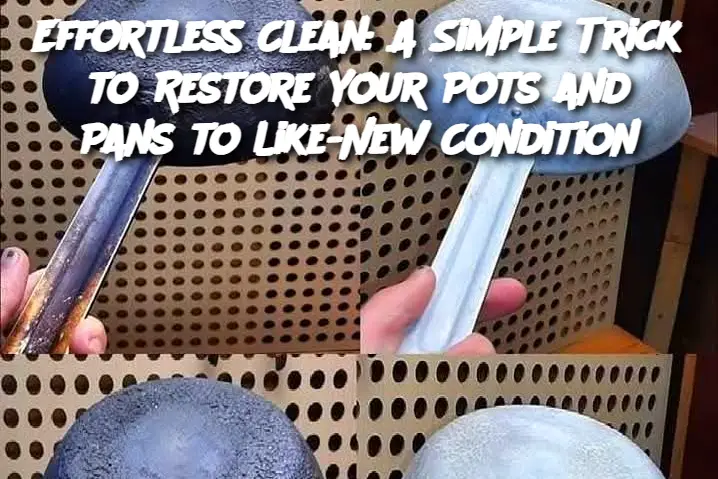ADVERTISEMENT
For heavily scorched pans, consider adding a bit of dish soap to the soaking water to help loosen even more stubborn residue.
If you’re working with copper pans, mix a paste of lemon juice and baking soda instead of vinegar for a gentler, copper-friendly cleaner.
For cast iron skillets, skip the vinegar and use just baking soda and water to clean, then apply a light coating of oil to maintain the seasoning.
FAQs
Can I use this method on all types of cookware?
Yes, this trick works well on most cookware, including stainless steel, aluminum, and enameled cast iron. However, avoid using vinegar on non-stick surfaces, as it could damage the coating.
How often should I clean my pots and pans this way?
It’s best to clean your cookware this way only when it’s visibly dirty or stained. Over-cleaning could wear down certain finishes, especially on non-stick cookware.
What if I don’t have baking soda?
If you don’t have baking soda, you can use regular dish soap and hot water to scrub away grease and grime, though it might take more effort for tougher stains.
Does this method work on burnt food?
Yes, this method works wonders on burnt food. The vinegar and baking soda combo helps lift burned-on residues without scraping or using harsh chemicals.
ADVERTISEMENT
